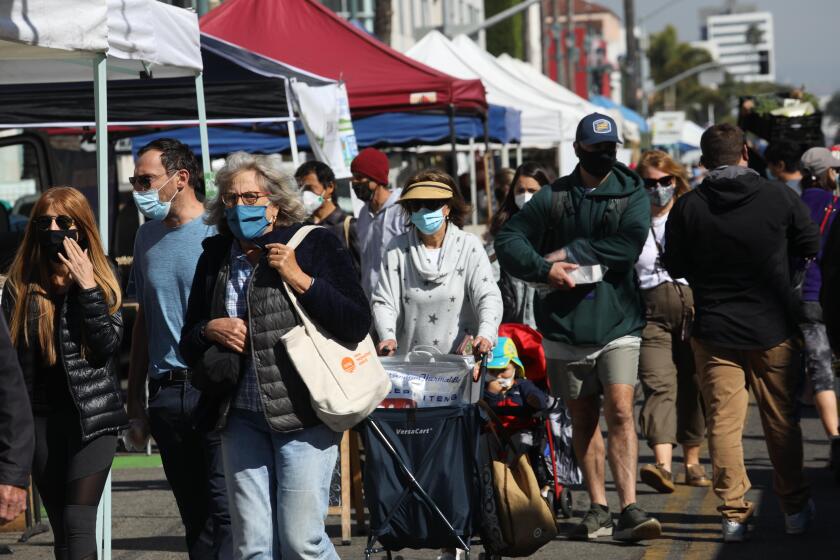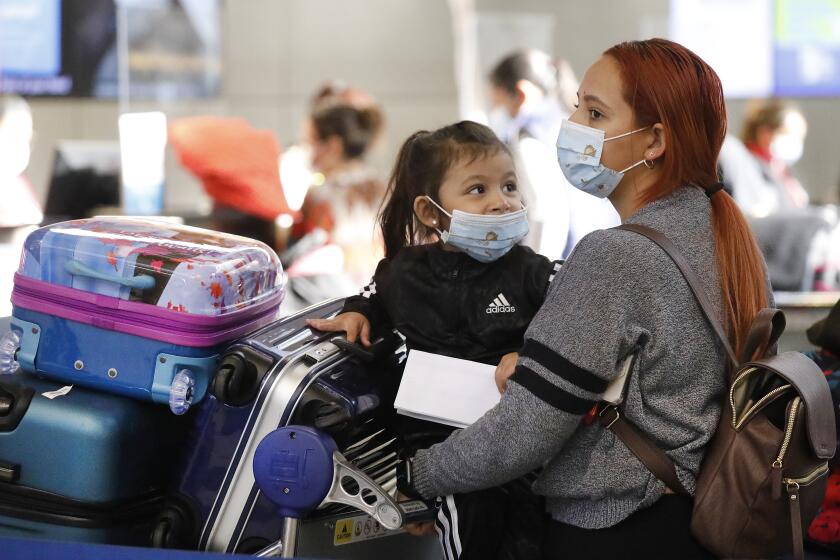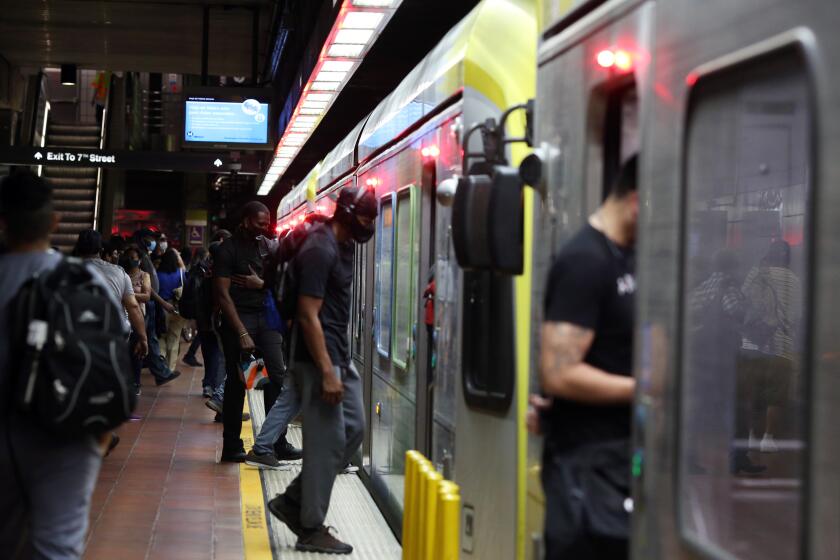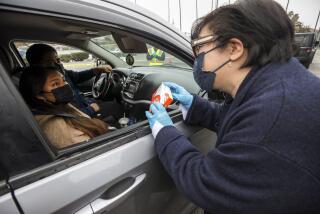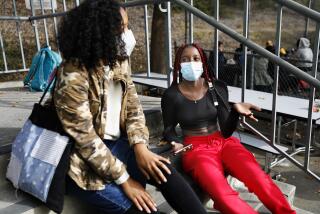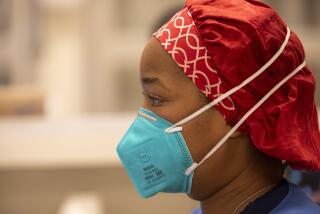What does California’s alarming COVID-19 surge mean for schools?
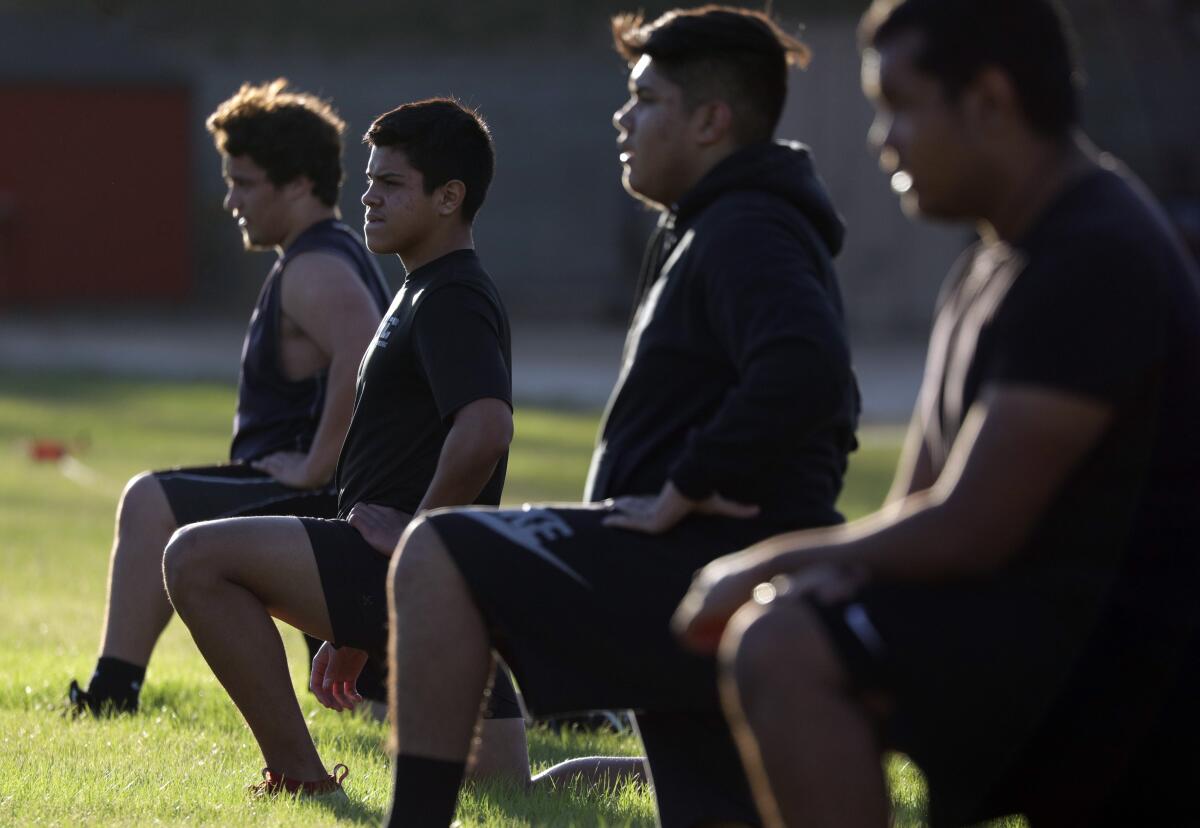
An alarming rise in new coronavirus cases has prompted major reopening rollbacks that also will stall efforts to reopen campuses throughout Southern California and most of the state — and affect the education of millions of students.
What happens at individual school districts and even schools will vary from county to county as officials grapple with complicated rules, evolving and expensive safety procedures, and infection rates in the communities they serve.
On Monday the number of counties in the strictest tier, purple, more than tripled to 41, including all counties in Southern California.
Here is a look at the various scenarios that will affect the vast majority of California’s more than 6 million students.
Officials are sounding the alarm about the rapid spread of the coronavirus and have warned that more restrictions could come, even a possible curfew.
How does the surge affect whether campuses can reopen?
Campuses cannot reopen for in-person classes while a county is in the purple tier — the worst rating, signifying widespread transmission. A campus can only reopen for full services, with safety measures in place, 14 days after health conditions in a county have improved enough to enter the next tier, red.
On Monday, as counties rolled back into the purple tier, new school reopenings were halted.
Magnolia School District, for instance, which serves K-6 students in West Anaheim and Stanton, had planned to reopen campuses to all students this week. But last week the school board pushed the opening date until after winter break — and now even that timing is a question mark.
“On one hand it’s disappointing because we know a lot of our students do need to be in school,” Supt. Frank Donovan said. “But on the other hand, we have to be very cautious, or this could become rampant.”
About 25% of Magnolia students are homeless, and many families are living in motels or other cramped spaces — putting students and their families at a higher risk than in many areas of Orange County.
Health officials issued new rules this week requiring residents to wear face coverings whenever they’re outside of their homes, with few exceptions.
How does the reopening situation vary in Southern California counties?
Los Angeles, San Bernardino and Imperial counties never left the purple tier, so they have not been able to reopen fully at any time since campuses closed statewide in March.
Orange, San Diego, Ventura and Riverside counties had entered the red tier or better, and many schools districts had begun to reopen in phases and with hybrid classes — which combine in-person and distance learning. Riverside was the first to backslide, weeks ago. Then last week, San Diego fell to purple and on Monday it was Orange and Ventura.
What happens to campuses that reopened before a county dropped back to the purple tier?
Schools that opened while a county was in the red tier or better, can remain open. However, campuses that had not yet reopened before their county became purple must remain closed until their county is once again out of the worst tier.
Before San Diego County dropped back into the purple tier, 35 of 42 school districts had reopened to some or all students for in-person learning, said Music Watson, a spokesperson for the county’s office of education.
“For those schools that were planning to reopen... we understand how disappointing it is for many families and employees, who have been working diligently to create and implement plans to safely reopen our campuses,” Watson said.
L.A. County’s adjusted coronavirus case rate has nearly doubled, from 7.6 new cases per 100,000 residents last week to 13.7 this week.
Are schools entirely shut down for in-person services?
Your school may be shut down for various reasons, but it isn’t via state mandate.
Even when a county is in purple, elementary schools can still apply for waivers. In L.A. County, the waivers — if granted — can apply to students in transitional kindergarten through second grade. Other counties grant waivers through sixth grade.
Schools and school districts can still bring back students with special needs in small groups that are kept separate from other groups. Under state rules, the number of these students receiving instruction or other services on campus can add up to 25% of a school’s enrollment at any given time.
Will the rules for special-needs students with in-person classes in L.A. County change as a result of rising infection rates?
No, according to county public health Director Barbara Ferrer.
“That program is working really well,” Ferrer said Monday.
What if a school had started to reopen before its county fell back to the purple tier?
In this situation, a school might have brought ninth- and 10th-graders to campus but not yet 11th- and 12th-graders before the county fell into purple. Such schools might be able to continue with their staggered reopenings — providing they receive approval from the county health officer, according to officials in Orange and San Diego counties.
Presumably such a practice also would apply to other counties, although each county can adopt stricter policies than the state.
Officials are sounding the alarm about the rapid spread of the coronavirus and have warned that more restrictions could come, even a possible curfew.
My school is hardly serving any students. Why is that?
When a particular school is serving few students, it could be that officials think that there is too much COVID-19 in the community or that safety measures are not yet in place or not affordable. Or districts could still be working through workplace-safety rules and other processes with their employee unions.
My school seems to be operating almost normally — and my county is in the purple tier. Why is that?
It could be that your school is following all safety protocols. If classes are staggered, the 25% rule can cover a lot of students — especially when combined with an elementary waiver, legal child-care services and athletic conditioning.
The L.A. County Health Department has committed to visiting every campus — with an eye to help rather than to punish. Suspected violations can be reported to (888) 700-9995.
When will high school sports resume?
The state has allowed physically distanced conditioning since the start of school, but districts set their own timetable. The hope has been that, for example, more traditional football practice could begin in mid-December and football games in January. This seems unlikely based on remarks Monday by Gov. Gavin Newsom, who suggested further delays are likely without providing details.
If you have additional questions, please email howard.blume@latimes.com. He’ll try to answer them via email or in print.
More to Read
Sign up for Essential California
The most important California stories and recommendations in your inbox every morning.
You may occasionally receive promotional content from the Los Angeles Times.
